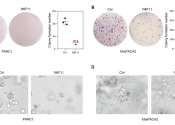In medicine, an adverse effect is a harmful and undesired effect resulting from a medication or other intervention such as surgery. An adverse effect may be termed a "side effect", when judged to be secondary to a main or therapeutic effect, and may result from an unsuitable or incorrect dosage or procedure, which could be due to medical error. Adverse effects are sometimes referred to as "iatrogenic" because they are generated by a physician/treatment. Some adverse effects only occur only when starting, increasing or discontinuing a treatment. Using a drug or other medical intervention which is contraindicated may increase the risk of adverse effects. Adverse effects may cause medical complications of a disease or procedure and negatively affect its prognosis. They may also lead to non-compliance with a treatment regimen.
The harmful outcome is usually indicated by some result such as morbidity, mortality, alteration in body weight, levels of enzymes, loss of function, or as a pathological change detected at the microscopic, macroscopic or physiological level. It may also be indicated by symptoms reported by a patient. Adverse effects may cause a reversible or irreversible change, including an increase or decrease in the susceptibility of the individual to other chemicals, foods, or procedures, such as drug interactions.
In clinical trials, a distinction is made between adverse events (AEs) and serious adverse events (SAEs). Generally, any event which causes death, permanent damage, birth defects, or requires hospitalization is considered an SAE. The results of these trials are often included in the labeling of the medication to provide information both for patients and the prescribing physicians.









